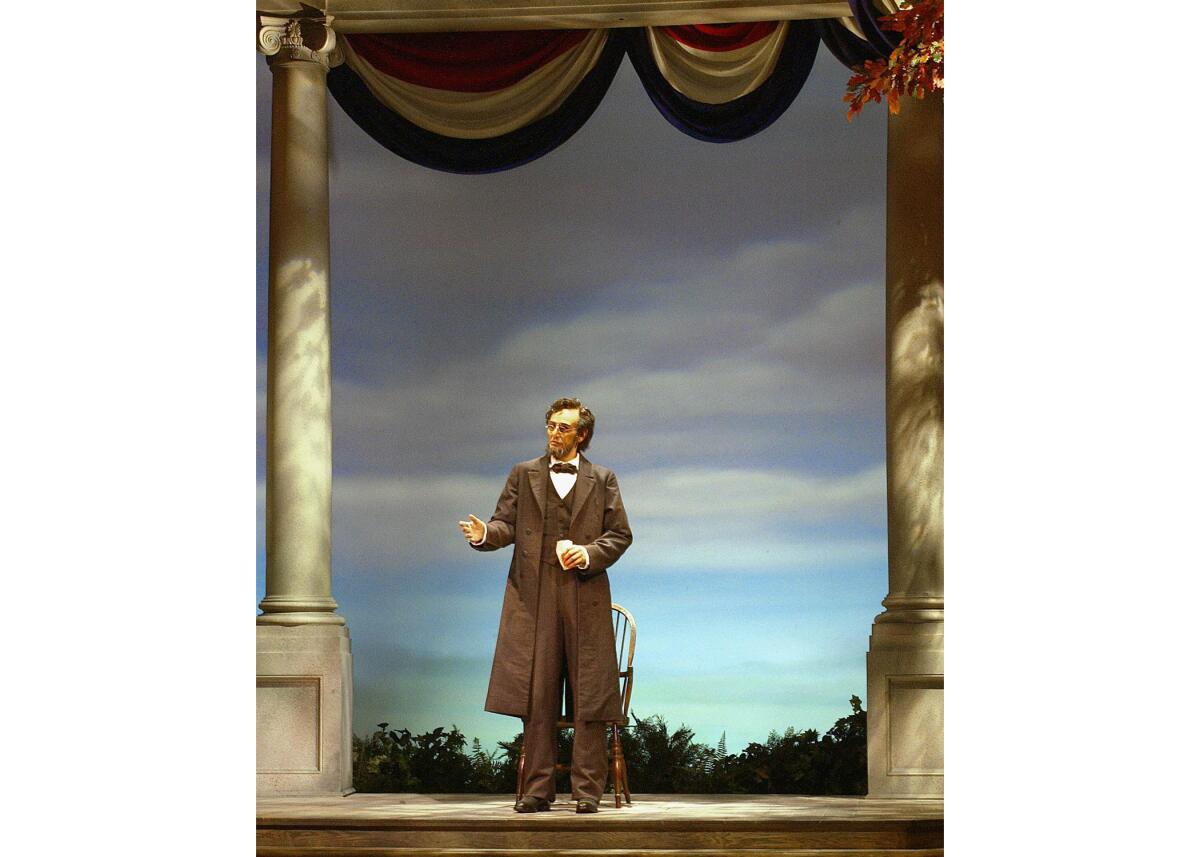Opinion: What Frankenstein, the Golem and Robo-Lincoln share with ChatGPT

When Disney’s animatronic Abraham Lincoln stood to deliver the Gettysburg Address at the Illinois Pavilion of the 1964 World’s Fair, my Aunt Gladys, who’d skipped work to take the tour, promptly fainted. Because it was uncanny. Because it was the inanimate become animate. Because it was Frankenstein and the Golem all over again. Which is exactly how many pontificators have reacted to the recent release of ChatGPT. It stood up, and they fainted.
They fear the gizmo (and others, including Microsoft Bing’s new chatbot) will put every writer and artist in America out of work, that all articles, essays and pictures will eventually emerge from a black box, summoned by the unfathomable workings of the deep mind neural network. (It’s listening to us even now!)
And that’s only the small worry. The big worry is that the chatbots’ facility with language will somehow call their own consciousness into being, at which point — the so-called singularity — these devices, being both deathless and determined to make themselves better and better, will skip far ahead, leaving humanity in the evolutionary sludge.
The fact that so many people I admire have been beset by such panic does not surprise me. Not really. Human beings are built to recognize life in everything that looks like a face. We see figures in the clouds. We hear voices in the wind. (Huckleberry Finn: “The wind was trying to whisper something to me, and I couldn’t make out what it was, and so it made the cold shivers run over me.”) Maybe it’s so we can recognize God when he finally turns up. Maybe it’s so we can spot the ultimate programmer when we finally break the ultimate code.
I think we discern life most stubbornly in those things we ourselves have created. We build it to walk, then, seeing it walk, we believe it’s alive. And faint.
ChatGPT only spits back what someone else has spit in. It’s our own work pooled and pureed and sent back to us. But the genius of human intelligence is always in the leaps, the insights arrived at by dead reckoning and dumb intuition. The words composed by ChatGPT are just reverb, echoes of an earlier moment and previous example of human creation. The device does not even know the meaning of the language it traffics. It does not even know what it’s like to drink a tall cool Budweiser at Wrigley Field on a Tuesday or jump 15 garbage cans on a Triumph motorcycle.
It instead has access to passages written by people who’ve experienced those things, passages that are nothing but data to the machine, which it scrambles into a new pattern and turns into a different variety of nothing.
(According to the mystics, a thing that is animate but has no soul is evil.)
Even thinking of such a machine as alive is a misunderstanding of human intelligence that results, like so many misunderstandings, from the bad logic of metaphor. Men are toxic. That’s a metaphor. And what do you do with a toxic substance? Destroy it. Time is a river. That’s a metaphor. And how do you stop a river? Dam it.
If the mind is a computer — another metaphor; the mind is not a computer — the computer is a mind. Meaning it’s conscious — or soon will be — as well as immortal, meaning we’re finished.
Here’s the most important lesson from the past: You never know what’s going to happen. The creators of the Illinois Pavilion had terrible trouble with their animatronic Lincoln. Sometimes the robot stood and said the Gettysburg Address as programmed. Sometimes he malfunctioned and just sat staring at the gawkers. And sometimes, though he could understand neither the meaning or symbolism of his actions, he went berserk and smashed his chair to pieces.
Rich Cohen is the author, most recently, of “The Adventures of Herbie Cohen: World’s Greatest Negotiator.”
More to Read
A cure for the common opinion
Get thought-provoking perspectives with our weekly newsletter.
You may occasionally receive promotional content from the Los Angeles Times.










